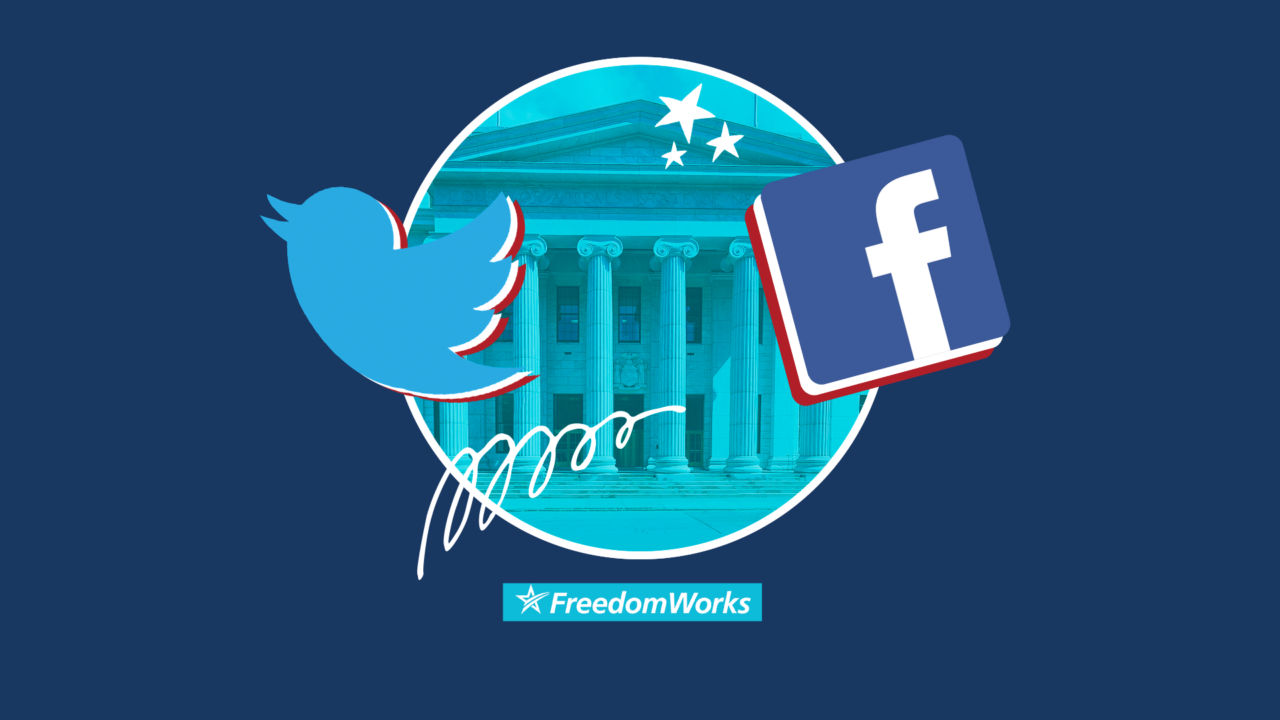The ‘End-of-the-Internet’ Rhetoric Surrounding Section 230 Is Way Overblown

As seen in Real Clear Markets
Last week, the Supreme Court (Court) agreed to hear two cases concerning the correct statutory interpretation of 47 U.S.C. §230 (Section 230). In response, Big Tech platforms (platforms), their sympathizers, and some in the media asserted outright falsehoods like the Court could “overturn” Section 230 and these cases could end the internet. Much of what you’ve heard about these cases is likely wrong, and intentionally so. The record needs to be straightened out.
First, the Court has never interpreted Section 230. In the 26 years since the law’s enactment, the only justice to go on record questioning how lower courts have expanded the statute’s immunity is Justice Thomas. See Malwarebytes, Inc. v. Enigma Software Group (2020). Second, the Court is not being asked to “overturn” Section 230. These cases are not about the constitutionality of the law, but the correct interpretation of it. In these cases, the Court “interprets a statute in accord with the ordinary public meaning of its terms at the time of its enactment.” See Bostock v. Clayton County (2020) at 4. Here, we are concerned with what the statutory terms meant in 1996.
In cases over statutory interpretation, the text is often the beginning and end point. §230(c)(1) provides, “[n]o provider…of an interactive computer service shall be treated as the publisher… of any information provided by another information content provider.” For platforms to receive immunity, they must show the plaintiff’s claim (1) treats them like a publisher and (2) the information at issue does not belong to them. Instead of reading the statute, some argue Congress’s overarching purpose was to provide broad immunity. While the congressional debates say nothing like that, the current textualist Court is unlikely to agree with those arguments anyway.
The facts in Gonzalez v. Google and Twitter v. Taamneh are horrific. Parents of children killed in ISIS terrorist attacks sued Google (YouTube), Facebook, and Twitter under a civil terrorism statute alleging that the platforms aided ISIS by knowingly recommending their content through their algorithms. Thus, the broad question in these cases is whether Section 230 immunizes platforms when they make targeted recommendations. But the specific textual question is whether claims that go after platforms for their targeted recommendations treat them like a publisher as that term was understood in 1996.
In 2018, the U.S. Court of Appeals for the 2nd Circuit decided a case with very similar facts to Gonzalez and Taamneh in Force v. Facebook. While the majority held Facebook’s content suggestion algorithm received immunity under Section 230, then-Chief Judge Katzmann’s dissent argued it did not because it was not a publishing function. This was because Facebook’s algorithm was its own message, and it created networks of people. Facebook took information about users from their prior Facebook activity, affirmatively told them what else they might like and suggested it to them, and created connections of people on Facebook and in the world as a result. Facebook’s actions were markedly different from traditional publishing functions–as understood in 1996 and protected under Section 230–like decisions to post, take down, or edit content. The dissent was also favorably cited in Justice Thomas’s statement in Malwarebytes (see pages 8-9) and might be where several of the justices end up in the cases.
The unhinged rhetoric that if the platforms lose, the internet is over or it takes us back to a pre-Section 230 internet, comes from people that know their claims are false. If the platforms lose because targeted recommendations are not protected by Section 230, the First Amendment will immunize their actions in almost every case. In the small subset of cases where it doesn’t, the plaintiff still needs to prove the platforms violated every element of the claim by a preponderance of the evidence (more than 50%). In some cases, the platforms might not have violated the statute. And in cases where the First Amendment does not immunize their actions, platforms can adjust their algorithm to prevent those recommendations.
If the Court holds that a platforms’ targeted recommendations are not immunized under Section 230, it does not make them liable for simply hosting content. The publishing functions as understood in 1996 are still protected. The rhetoric about these cases is intentionally overblown; all these cases ask the Court to do is finally interpret Section 230 since its codification 26 years ago.




